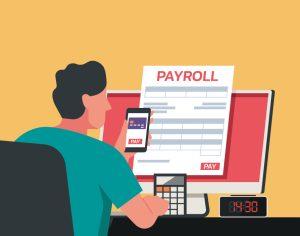COVID-19 has turned the worlds of small businesses upside down. So much so, that even before lockdown commenced, hotels and bars were seeing revenue drops of 50-60%. Despite plans to ease lockdown measures and restart the economy, it will be a long time before small businesses are able to return to their known ‘normal’. Social distancing is here to stay for the foreseeable future, completely reshaping the way that shops, cafes, salons and many others operate. We are already seeing small businesses step up to the challenge with a wave of innovation. From salons completing Barbicidequalifications to show customers they are dedicated to infection control, to independent restaurants creating takeaway services for their local communities. However, innovation around operating procedures is not enough. Small businesses must also make some critical financial decisions to secure their future. Those businesses that come out the strongest, will not just take action but change their entire mindset around managing their finances.
Small businesses need to consider three main points in order to take control of their finances during the pandemic. These are: looking at funding options, refreshing finance and taking a conservative approach to business.
Look at funding options
There is no quick fix for returning to ‘business as usual’. Numerous sectors including bars, restaurants and clubs will have to rethink their business models for a significant period. Once they are allowed to reopen, they will not be able to service the same level of customers; seriously impacting takings. Small businesses need access to fast, fair and flexible finance that works with the rhythm of their business. It is therefore important to consider the range of financial options and support on offer, including grants, tax breaks, and furlough schemes. Yes, small businesses share mixed feedback on the government-backed loan schemes, but these loans are a critical lifeline for many small businesses in the UK, not just to manage cash flow but to also support demand when businesses start returning to normal. .
But, before jumping into the application, it is essential that small business owners understand the exact terms of these loans. They should talk to their financial provider to learn about their options. They must come to these discussions armed with past and current financials and a plan for the next one to three months. This will ensure they get an accurate recommendation on the best financial support for them.
For those businesses operating in the hospitality industry or retail trade where there is a high need for working capital, the ‘Bounce Back Loan Scheme’ (BBLS) will be of particular interest. Since its launch on May 4th, 267,000 loans worth £8.4billion have been issued to struggling small business firms. As the government guarantees 100% of the loan to the lender, the loan is low risk for lenders and can therefore offer small business support at speed. With a seven question application process, the BBLS is a simple and accessible means of financial support for small businesses.
The CBILS scheme of course is the other main option for financial small business support. Delivered through more than 60 British Business Bank accredited lenders, this scheme can provide facilities of up to £5million to small businesses. The speed and flexibility of finance is essential during this time. Going through CBILS accredicted lenders such as Liberis who can provide term loans ranging from £50,001-£150,000 will enable small businesses to access the finance they need in a matter of days.
Refresh your financial management
Business might feel stagnant, but the current climate is changing all the time. The government is extending and adapting support schemes as we better understand how the pandemic will impact society in the mid-term. Small businesses must also be prepared to adapt their financial plans and take a flexible approach to an uncertain future. Now is a good time to update the management of accounts and cash flow statements. Small businesses need to know the actual numbers behind their business and start taking a data-driven approach to their operations. The more businesses can plan their finances in advance, the more equipped they can be for the challenges ahead.
Be safe, not sorry
It’s always important to remember the basics – now is no time to take risks. Small businesses need to be taking a conservative approach to their business. Forecasting should be based on businesses running at an initial 50 per cent of capacity due to restrictions. Organisations should create a lean plan at this capacity to streamline operations and ensure they have the best chance of surviving and hopefully thriving.
Small businesses can also look at the state of small businesses recovery rates in other countries coming out of lockdown for guidance on what they can expect as lockdown eases. In Eastern Europe, for example, Liberis data indicates that 40% of small businesses in Czech Republic and Slovakia that had to close due to the pandemic are already back in business. This is promising, but we must remember that the fate of small businesses in the UK will be dependent on a range of factors. There is a huge consumer appetite to support small businesses throughout these challenging times, with a recent survey from GoDaddy reporting that 63% of respondents are more likely to shop at small, local micro-businesses to help them financially during the pandemic and, of these, 67% said they will continue to do so even after the lockdown ends. These are good intentions, but with the Bank of England warning of a deep recession following lockdown due to a reduction in consumer spending, high unemployment and reduced salaries, shops need to make sure they adjust their cost base to potentially lower volumes for the next 12-24 months.
A shift in mindset
The pandemic will change the small business landscape for good. Small businesses will need to continually evolve to the fast-changing surroundings but keep a tight grip on financial management if they are to remain secure. In addition to having a stronger hold on their cash outgoings, small businesses will want to be looking at a wide range of financial support options including digital banking, real time financial forecasting, and investment from fintechs. If anyone good comes out of the current situation for small businesses, it is a prompt for smarter financial thinking and support.
“
Share via:


















































